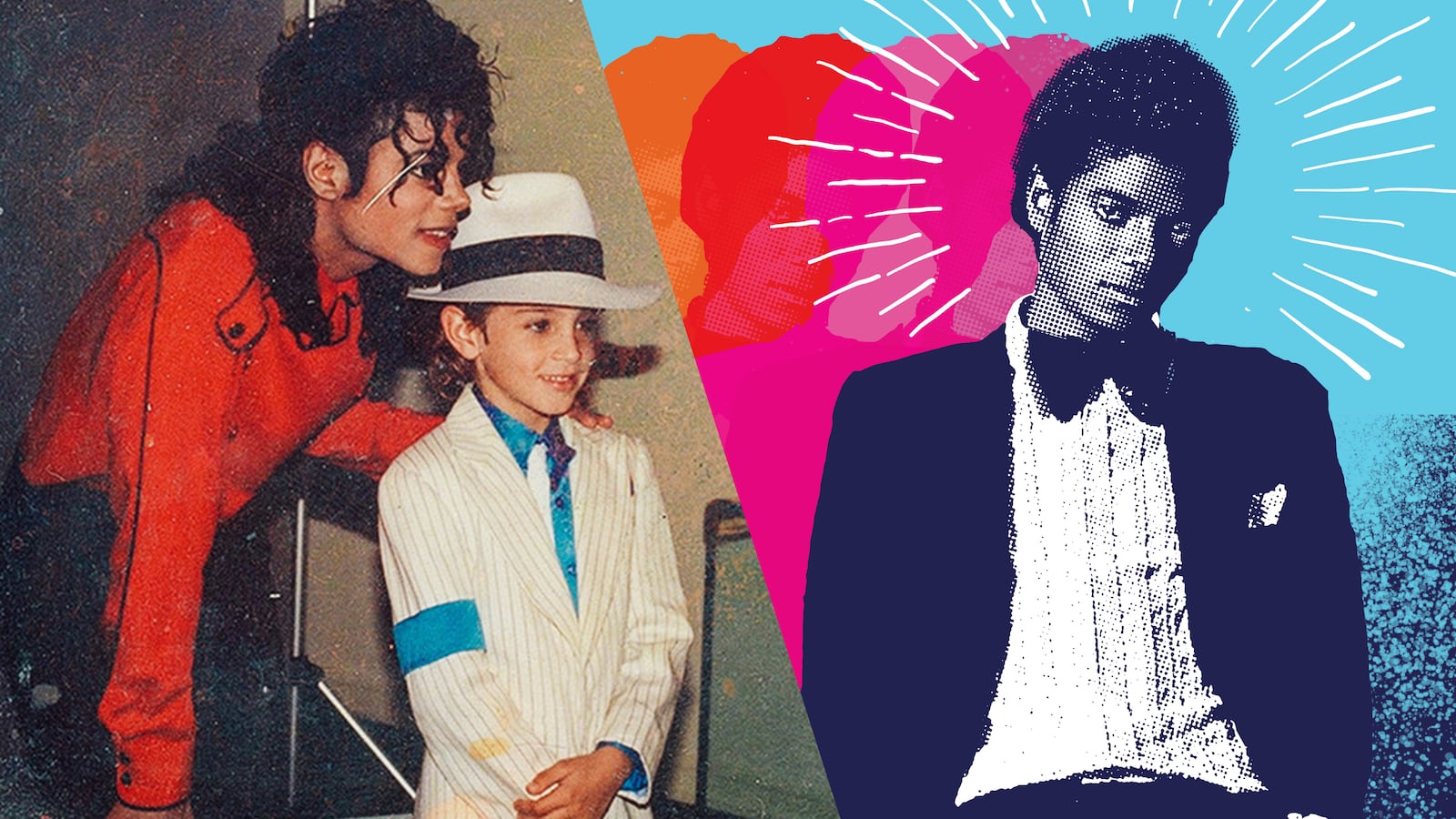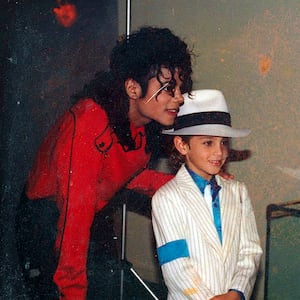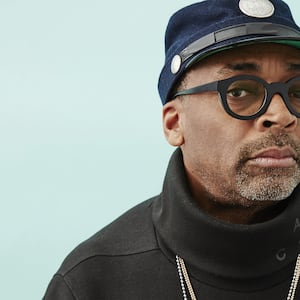PARK CITY, Utah—The most talked-about film of the 2019 Sundance Film Festival is unquestionably Leaving Neverland, filmmaker Dan Reed’s four-hour, two-part documentary chronicling the alleged child rapes committed by music legend Michael Jackson, and the devastating effects they had on two of his accusers and their families, whose starry-eyed matriarchs allowed the King of Pop to have sleepovers—and plenty of other alone time—with their young sons.
Safechuck and Robson recount how they’d idolized Jackson from an early age, with Safechuck starring in a popular Pepsi commercial with him and Robson serving as an MJ impersonator in his native Australia, eventually earning the chance to perform onstage alongside his hero. Both men (and their families) offer thoroughly convincing testimonies, explaining how Jackson earned their trust over frequent hours-long phone conversations, meetings, dinners, and luxurious trips to faraway places, with his innocent, child-like nature disarming them.
Jackson, the men claim, violated that trust when he began sexually abusing Robson and Safechuck at the ages of 7 and 10, respectively. They describe in graphic detail how the alleged abuse began with French kissing, nipple-squeezing and masturbation, with the children spreading their butt cheeks while the musician pleasured himself, and eventually moving on to oral and anal sex. Safechuck says that Jackson once performed oral sex on him in his sleep, that the two had a mock-wedding ceremony, and that he would “reward” Safechuck with diamond-encrusted jewelry for sex acts; Robson, meanwhile, contends that Jackson made him perform oral sex when he was just 7 (“In a little seven-year-old’s mouth,” he says, shaking his head).
They say that Jackson was fully aware of the abuse he was inflicting on them—that he would abuse them in fortified closets within bedrooms or a locked room off of his movie theater; that he would have them run drills in case they were caught; and that he would constantly gaslight them, telling them that the abuse was an expression of their love for one another, and that if they were ever to be caught they would both serve time in prison. When they were younger, both men testified that they were not abused by Jackson during his child-abuse trials, but later admit that they were trying to protect their idol, whom they still had conflicted feelings about. In one of these trials, Jackson’s maid at Neverland Ranch also said that she saw Jackson showering naked with Robson when he was a child. (The Jackson family has branded the film a “public lynching,” further arguing, “The film takes uncorroborated allegations that supposedly happened 20 years ago and treats them as fact.”)
Leaving Neverland is also the most controversial film of Sundance 2019. Prior to its premiere screening on the morning of Jan. 25, which this writer attended (as did Reed, Robson and Safechuck), the venue had received numerous threats. “Tensions are higher for this movie than anything I’ve ever seen at Sundance before,” a law enforcement source told Deadline. “No one is going to be prevented from exercising their Constitutional rights, but we are not going to allow this to get out of hand, in any way.”
It was the only screening at Sundance where attendees—including luminaries like Lena Waithe, Boots Riley and #MeToo founder Tarana Burke—were patted down and wanded with a metal detector. The 266-capacity Egyptian Theatre, where the film played, was swarmed with about two-dozen police officers, including a few with bomb-sniffing dogs. For all the excitement, however, only a handful of pro-Jackson protesters showed up on the chill Park City morning.
That Leaving Neverland—which will air later this year on HBO—debuted at Sundance is a curious development, given how only three years ago, the festival made a big spectacle of premiering the Showtime documentary Michael Jackson’s Journey from Motown to Off the Wall, a film directed by Spike Lee and produced by the Jackson Estate. Sundance also hosted a number of tie-in events for the film at the fest.
When I asked Lee at Sundance why he chose to ignore the child-abuse allegations against Jackson in the documentary, he told me, “That was not my choice. That was determined by the record company, the Michael Jackson estate, and the fans. That’s how they arrived at that decision.”
“They just have a viewpoint of how they want it to be, and that’s their right,” he added. “And going in, I knew I didn’t want to deal with that stuff. It’s just about the music.”
After pressing Lee more on the abuse allegations against Jackson, Lee argued, “The legacy has been hijacked. The narrative has been hijacked. So things like Bad 25 and Off the Wall are going to take it back. I’m happy I’ve been given the opportunity by Sony, Epic, and the Jackson Estate to combat that. The manifesto from the get-go has been: focus on the music, his artistry, his genius. That’s the bottom line.”
Off the Wall was the second in a planned trilogy of Jackson documentaries by Lee that began with Bad 25 and was to end with Thriller, though it’s not yet known if he still plans to follow through with that blueprint.
And in the #MeToo era, eye-opening documentaries like Leaving Neverland the recent Surviving R. Kelly are forcing viewers to grapple with their own complicity, and whether one truly can separate the art from the artist, as Lee argued. It’s also led to soul-searching on the part of institutions like Sundance, an independent film festival that’s played an outsized role in elevating accused sexual predators like Jackson and, to a greater degree, Harvey Weinstein, a man who not only was at the front of the Women’s March here just two years ago, but helped make the fest what it is today.







